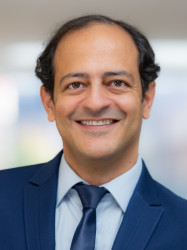BibTex format
@article{Cheraghchi:2017:10.1145/3029050,
author = {Cheraghchi, M and Indyk, P},
doi = {10.1145/3029050},
journal = {ACM TRANSACTIONS ON ALGORITHMS},
title = {Nearly Optimal Deterministic Algorithm for Sparse Walsh-Hadamard Transform},
url = {http://dx.doi.org/10.1145/3029050},
volume = {13},
year = {2017}
}

